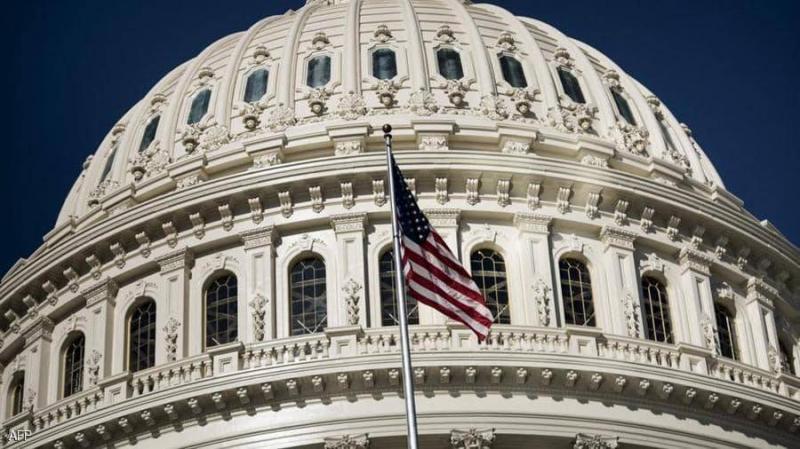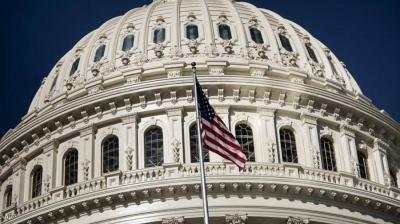The U.S. Congress is hastening toward the approval of the "Religious Freedoms in Turkey and the Ecumenical Patriarchate" law. The authors are expected to have completed its initial draft, which will be presented for discussion and approval in the coming weeks. The law aims to impose mandatory oversight on the U.S. administration and other executive institutions in the country, monitoring the Turkish government's behavior regarding religious freedoms within the country and the mechanisms by which it infringes on the rights of various religions and sects both domestically and abroad.
The proposed law has been prepared by several members of the U.S. Congress from both major parties, specifically those affiliated with the "Greek lobby" within the United States. Notably, Senator Carolyn Maloney, a Democratic representative from New York and co-chair of the Congressional Greek Caucus, along with prominent Republican Senator Gus Bilirakis, who is considered her partner in that group. Other members include Democrat Jim McGovern and Republican Brian Fitzpatrick.
The lawmakers aim to push the U.S. administration to place Turkey on the special watch list of countries violating religious freedoms, which typically includes the most comprehensive countries globally, along with extremist armed groups. Placing any country on that list compels the U.S. administration to implement a significant range of measures regarding that country.
Primary sponsor of the proposed law, Carolyn Maloney, stated in media remarks: "The Turkey and Ecumenical Patriarchate Religious Freedom Law of 2021 will exert significant pressure on Turkey to stop its violations related to the religious freedoms of the Ecumenical Patriarchate. Without follow-ups and concrete decisions from the United States, President Erdoğan will continue to operate with impunity, and Turkey will persist in its campaign of religious discrimination against Orthodox Christians, the Ecumenical Patriarchate, and other religious minorities."
Bilirakis responded to Maloney's comments, saying, "The United States must remain steadfast in imposing expectations for shared democratic values from our so-called allies, including a continuous respect for religious freedom. I will continue to join my colleagues in speaking on behalf of those whose voices have been silenced, until the day this injustice is corrected."
International observations regarding religious freedoms in Turkey have intensified following several statements from the Turkish president, which observers viewed as infringing upon the values of religious freedoms explicitly stated in the Turkish constitution, in addition to a series of public policies applied by the Justice and Development Party regarding the "Patriarchate of Constantinople," which is the global center for Christians of the Ecumenical Orthodox denomination, whose numbers are estimated at nearly 300 million, spread around the world.
The Patriarch based in Istanbul is viewed as the spiritual leader of this community, with Turkish authorities imposing several conditions on him, including the requirement of holding Turkish citizenship.
This new U.S. law follows the annual report "Religious Freedoms Around the World 2020" issued periodically by the U.S. State Department. The report characterized the status of religious freedoms in Turkey as "a rise in religious and ethnic violations," noting an increase in targeting religious minorities and a rise in societal violence against the religiously inclined.
Subsequently, the European Commission appointed a special envoy for religious freedoms in Turkey, who aims to initiate initiatives involving people from different faiths, according to the announcement.
Greek lobbying organizations in the United States have been working in recent months to consolidate the law. The American Hellenic Institute (AHI) and the American Hellenic Educational Progressive Association (AHEPA) have collaborated to achieve this goal. The Chairman of the Greek Institute, Nick Larigakis, praised the efforts made by Congress members in media statements, adding: "Turkey continuously suppresses religious freedom and human rights for its religious minorities, with impunity. The new law is an important bipartisan piece of legislation that will hold Turkey accountable for its poor record on intolerance and religious freedom."
It is noteworthy that the "International Religious Freedom Act" was enacted in the United States in 1998, which mandates that U.S. foreign policy consider religious freedom as a foundation for its international relations and behaviors. From this act emerged the U.S. Commission on International Religious Freedom (USCIRF), which monitors and issues annual reports on the conditions of religious freedoms in countries worldwide.
This commission stated in its latest annual report: "Religious freedom in Turkey continues to follow a troubling trajectory," calling for Turkey's inclusion on the special watch list due to what it described as serious violations of religious freedom, reiterating its earlier demand from the previous year, but without the U.S. administrations taking any action in that direction.
However, the approval of the new law will compel the U.S. administration to take tangible steps toward Turkey, and if it fails to implement them, it will be required to "submit a report to Congress, containing a detailed justification for ignoring that recommendation from the U.S. Commission on International Religious Freedom." Additionally, the U.S. State Department will be obliged to present a report to Congress regarding its policy to promote religious freedom in Turkey, including a description of planned efforts to counter the deterioration of religious freedoms in Turkey, including diplomacy, foreign aid, and other relevant efforts, as stipulated in the draft law.




